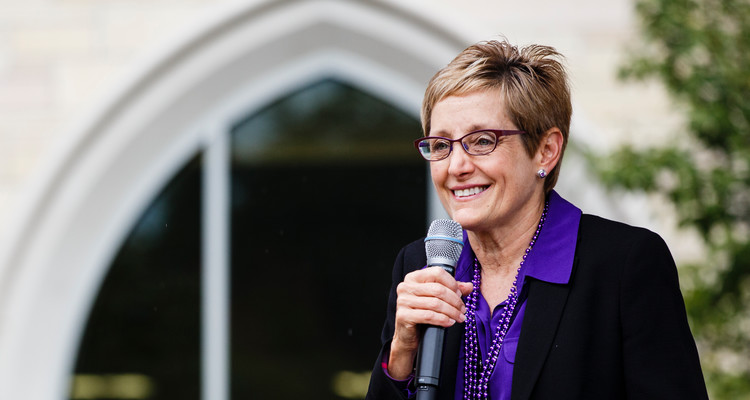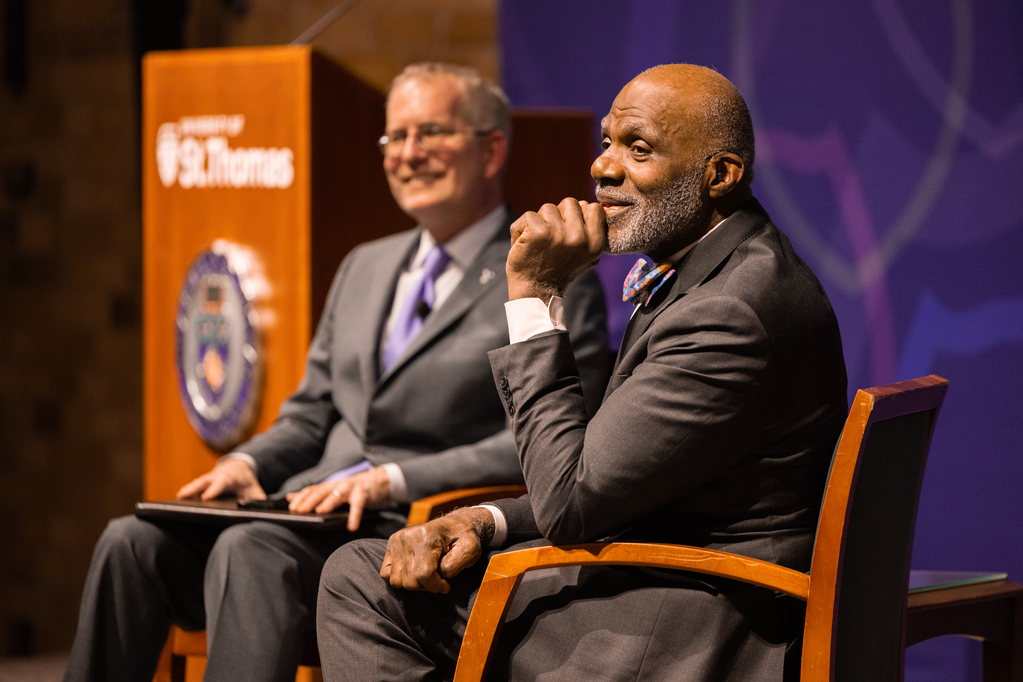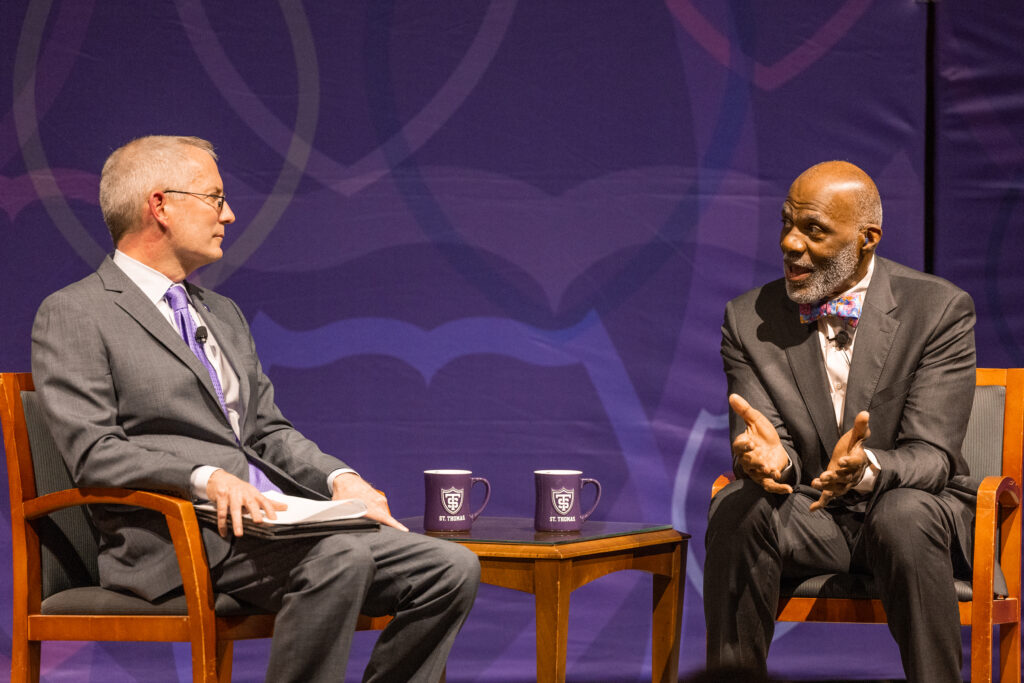As your St. Thomas president, I frequently read and reflect about the industries and workplaces of the future. Why? Because our jobs as faculty and administrators are to ensure our future alumni have the capacity to lead fulfilling and prosperous lives and make sustainable differences in their workplaces, families, communities and the world.
A fundamental goal is to provide an education that will prompt alumni in 50 years to tell the president of St. Thomas what I consistently hear today from our Tommie network of over 100,000 alumni: that we transformed their lives.
The challenge is that we cannot keep doing what we do today and have the same outcome. The world is changing too dramatically. We don’t want to lose the essence of our success, yet we must anticipate and adapt. Future jobs and careers will be transformed by the enhanced power of digitization, involve more technology, incorporate more data, be more global and occur in a more diverse environment, and everything will be more interconnected.
Expanding industries, such as robotics, big data analytics and genomics, will eliminate jobs, raise complex ethical issues, and disrupt societies and cultures; they also will create many new jobs and professions, and talent will become the dominant form of strategic advantage for organizations.
Questions abound for us. What is needed from higher education to develop and prepare this talent? What impact will the rising demand for technical and professional education have on liberal arts education? Will a liberal arts education remain relevant?
A 1998 article by University of Wisconsin professor William Cronon defines a liberally educated person as someone who can listen and hear with empathy, read and understand with curiosity, persuasively communicate, solve puzzles and problems, take initiative and understand how to get things done, empower others for the well-being of the community and the advancement of common humanity, and see connections that allow one to make sense of the world and act within it in creative ways.
I believe the ideal education for the future will integrate liberal and technical/professional education: It will be interdisciplinary (merging sciences and humanities), multilingual (fluency in human languages and cultures, as well as technical languages) and experiential (learning in the context of real-world problems). It will integrate the contextual and the technical to create innovation. It will cultivate self-awareness, self-motivation and empathy. It will develop moral and collective consciousness.
While the challenges of the future are daunting, I am thrilled to be leading St. Thomas at this time. I believe we are providing just the kind of education that will best prepare our alumni for industries of the future. We provide an integrated liberal and technical/ professional education in our undergraduate and graduate programs. In 2015, almost 70 percent of our undergraduates majored in a STEM discipline or business. Yet, their studies are grounded in our liberal arts core curriculum, and their major courses integrate this context.
We provide our integrated education through a faith-based lens that is inspired by the Catholic Intellectual Tradition (CIT) and Catholic Social Thought (CST). The CIT inspires us to pursue truth through the integration of faith and reason. Two fundamental principles of CST are the dignity of the human person (we are called to respect and promote the dignity of all human persons) and solidarity (we are called to unity as one human family, we must develop genuine empathy and cannot remain untouched by the suffering of others).
It is these principles that form the foundation for the mission-based outcome of our education: Think. Act. Work. All for the common good.
Read more from St. Thomas magazine.


